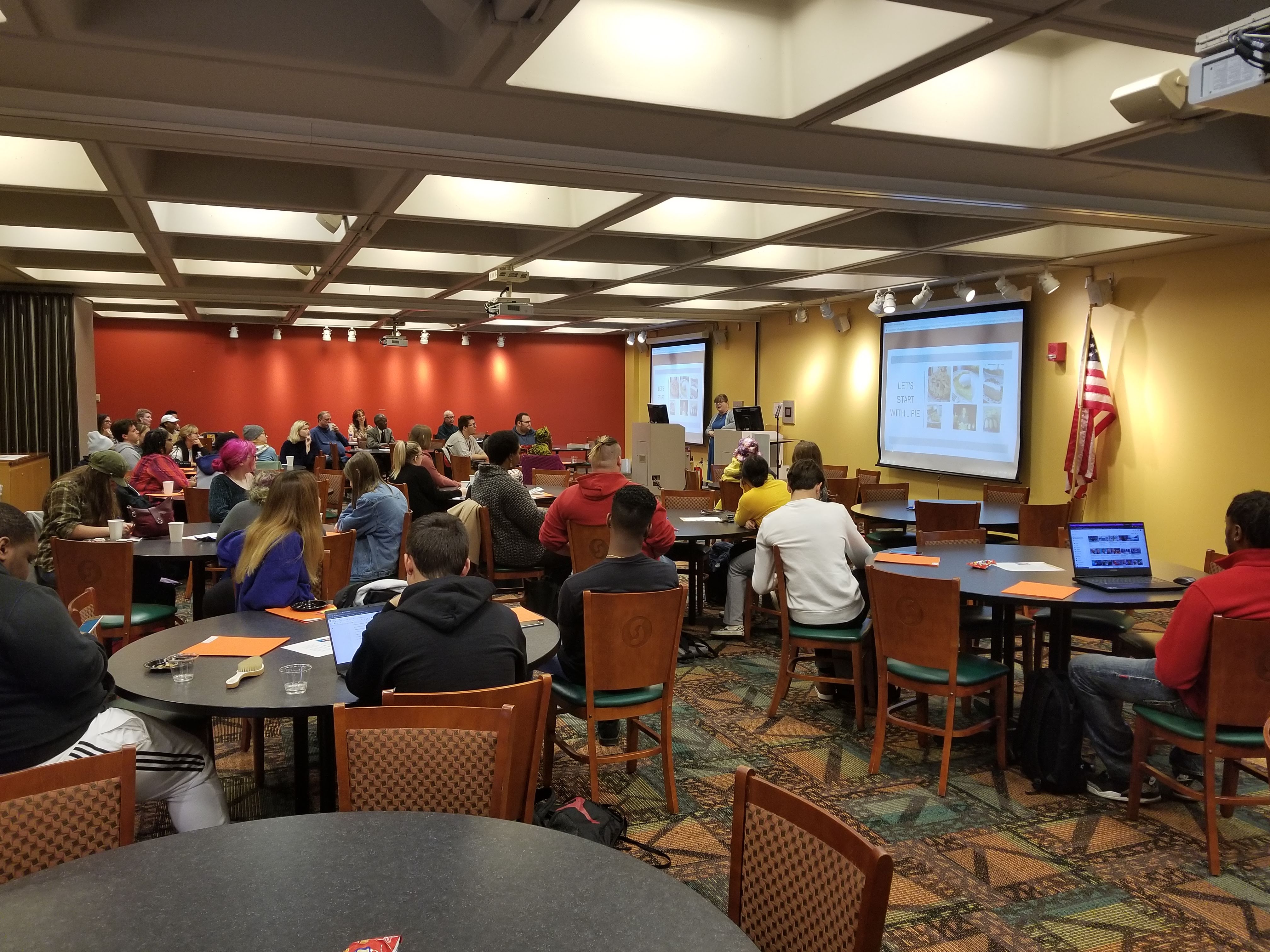Sinclair students got the opportunity to listen to experts and test their skills on Nov. 4 at the 46th Annual Writers Workshop. The workshop, held every year, is meant to help potential authors learn about the process of writing, give advice and talk about publishing. Four authors each spoke to students, with a panel discussion held at the end.
Local author Sharon Short was the keynote speaker. She started out by discussing her history as a writer and how when she was 15, she was able to have dinner with the keynote speaker from this same workshop.
She then started talking about pie and how it is important to her. She described pie as something that allowed her to be creative and no one can reject it like people do writing, thus, inspiring her to bake many different types of pie and causing her to write a book named “Death by Deep Dish Pie,” which has nothing to do with pie.
The main question she asked was “why?” Why do you want to write, and there is no wrong reason to want to write. She talked about all the different books she had published and the whys for each one of them. She then had everyone in the room take five minutes to write down their whys.
She then discussed the infrastructure of writing. The parts of this infrastructure are place and tools, time, knowledge, community, mindset and toughness. When it comes to places to write, anywhere that surrounds you with inspiration and a mindset to write are perfect. The same goes for tools, whatever is comfortable and works for you is perfect.
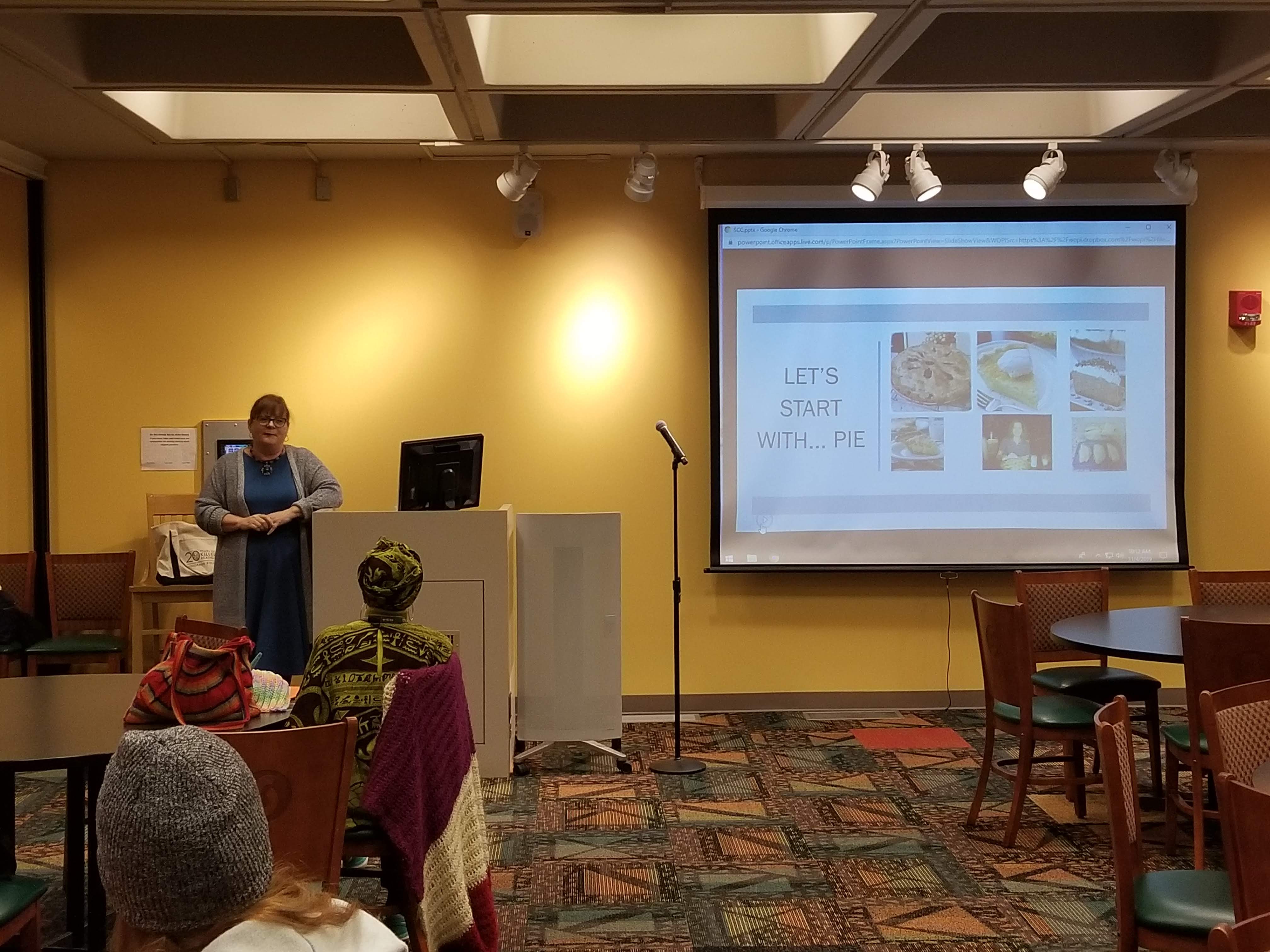
When it comes to time she said a common thing she hears is “I would love to write more but I do not have enough time.”
She disagrees with this stance because if you want to do it there should always time. Finding what it is that is wasting your time can help tremendously in increasing the time you have to write.
Using snippets of time to write instead of going through social media, watching tv or other time-wasters is key. The last thing she mentioned when talking about time is paying yourself first, meaning that you should take care of your body and not cut out self-care to write.
Knowledge, one of the other parts of “writing infrastructure,” is simply using resources you may have. Some resources she gave were many local workshops, Writersdigest.com and picking the brains of other writers. Community plays a part in writing also. Finding fellow writers to talk to about ideas, reading books and visiting libraries will help in the long run in becoming a writer.
Having a good mindset and toughness can help you keep going. Likewise, having the creativity to create character, storylines and a whole different world is absolutely required. Yet writers must also be honest with themselves on why you are doing it and what you want.
“No one needs your story but the world is hungry for stories,” said Short at the end of her speech.
Related Articles
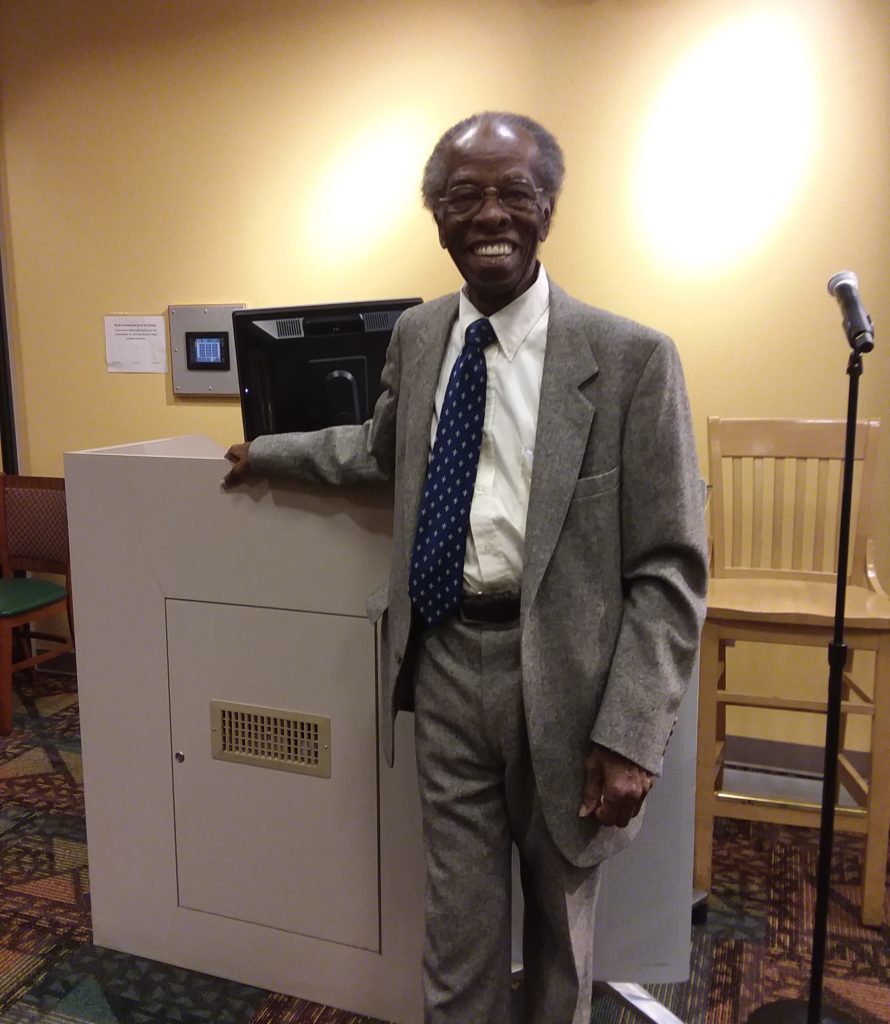
The next speaker was Dr. Herbert Martin who has earned multiple degrees and mainly writes poetry.
“Tomorrow is the day you practice for the year to come,” started his speech.”You have to let the imagination run as wild as you can. Times have changed, you can now self publish but you have to market it.”
He went on to speak about the importance of just doing things. He talked about how to work the system and the process and steps it takes to be published. He mentioned how you have to be patient when waiting for a response on whether they will take you work. He showed the book he uses to keep track of what poems are sent out and whether they were rejected or not.
Throughout his career he has often written about a wide variety of subjects, including the scar of slavery and of his home state Alabama.
His most recent book is “Shape of Regret,” which he shared he originally was going to name “Janet Jackson’s Nipple” but was asked to change the name.
“My mama had already told me, ‘Doesn’t matter what type of letters you put in front of your name if you are not prepared to do the job,'” Martin said in regards to having a Ph.D.
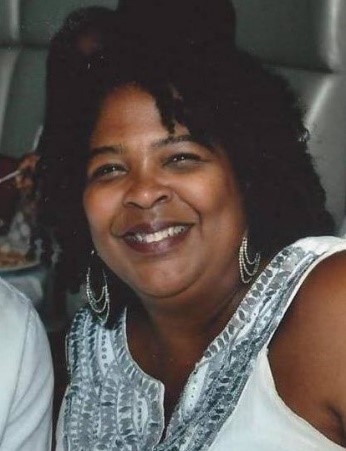
The third speaker was Crystal Echols, a local author and chair of the Developmental Language Arts department at Sinclair.
Echols is a romance novelist, specializing in stories featuring African American characters, with seven books published. An eighth is currently in the work, as the series focuses on a group of sisters and their loves.
“My goal when I write is to create the kinds of stories I enjoy reading,” Echols said. “I want the stories to be romantic, compelling, exciting and fun.”
Echols topic at the workshop, titled “Let’s Talk About Sex: Writing Love Scenes,” focused on making sure love scenes stay true to the story and characters within the work, and aren’t there just for the sake of being gratuitous.
“I talked about Exaggerated Awareness, which is a concept that says every look, every touch, every sense between the couple is larger than life,” Echols said. “They should always be profoundly impacted by each other.”
She encourages up and coming writers to take one of the creative writing courses at Sinclair. She states that the benefits that come from the discipline of regularly writing and the fellowship of other writers are among the class’s benefits.
Her final piece of advice to students: writing means rewriting.
“You have to be prepared to revise and sometimes reimagine your work,” Echols said. “Nothing is sacred; sometimes you have to let go of that passage you thought was perfect in service to the story.”
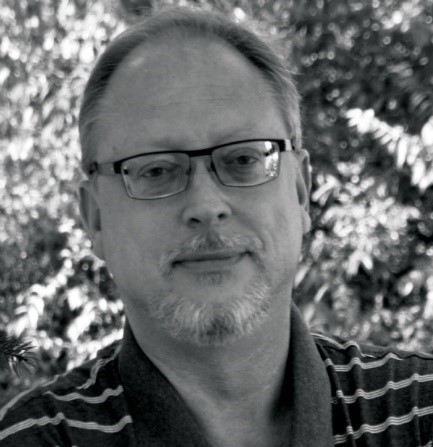
Following that, the third and final speaker, Tim Waggoner, took to the stage. Mr. Waggoner is an experienced author in the horror genre with nearly 50 novels under his belt.
His part of the program focused on the many forms of writer’s block along with the causes of it. He recommended writers to try new techniques and forget about the audience, the agents or even themselves and just write for the sake of the story.
“Answering questions, cause it’s the one thing writers can’t do on their own,” Waggoner said, speaking on his favorite part of attending workshops such as this. “Because they can read an article about it or watch a video with somebody about writing but this is the one place they can ask a question, and if there’s more than one person, you can bounce ideas off each other.”
At 2:30 the panel began and the featured poets and writers answered the questions of the attendants.
The Writers Workshop is a strong tradition that works to help prospective authors sharpen their skills and add more attributes to their creative toolbelts.
Ashley Brown
Reporter
Samuel J. Claude
Managing Editor


